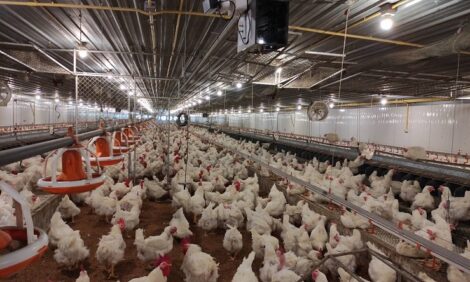



AFBF: Climate Bill Embarks on a Fool’s Errand
US - American Farm Bureau Federation President Bob Stallman yesterday said that the House-passed climate legislation will have little to no impact on global temperatures. Testifying before the Senate Committee on Environment and Public Works, Mr Stallman said without the adoption of similar actions by other countries, the US "will be embarking on a fool’s errand."|
* "A ton of GHG (greenhouse gases) emitted in China is the same as a ton of GHG emitted in Virginia. Regulating emissions in Virginia without regulating emissions in China will have little or no effect on the environment." |
Bob Stallman, AFBF President
|
AFBF is opposed to H.R. 2454, the House-passed climate change bill being examined by the Senate and that will serve as the basis for writing a Senate companion bill.
"Unilateral cap-and-trade legislation will have little or no impact on the climate because greenhouse gas emissions require a global response," said Mr Stallman. "A ton of GHG (greenhouse gases) emitted in China is the same as a ton of GHG emitted in Virginia. Regulating emissions in Virginia without regulating emissions in China will have little or no effect on the environment."
Mr Stallman noted that most experts agree that if the House legislation worked exactly as planned, it would not lower temperatures by more than a few tenths of a degree by 2050. Further, most experts agree the US can’t solve the problem alone.
AFBF also contends that the bill will raise food prices for consumers unless an offset program is put into place to defray production input costs. An agricultural offsets program administered by the Agriculture Department is an essential cost containment measure, but revenues from offsets will only partially defray increased costs and not all agriculture sectors will benefit from offset opportunities.
"Inclusion of an offset program is not the complete answer," said Mr Stallman. "Even with a robust agricultural offset program, the bill still does not make economic sense for producers because a number of sectors will be not able to participate."
Participating in an offset program will depend to a great degree on where the producer is located, what he or she grows and if his or her business can take advantage of the program, Mr Stallman noted. Not every dairy farmer can afford to capture methane. Not every farmer lives in a region where wind turbines are an option. Not every farmer can take advantage of no-till. And not every farmer has the land to set aside to plant trees, according to Mr Stallman.
"Yet, these producers will incur the same increased fuel, fertilizer and energy costs as their counterparts who can benefit from the offsets market," said Mr Stallman.
Another contention AFBF has with H.R. 2454 is that it would reduce the use of fossil fuels such as coal and oil, but does not specify what energy source will plug the hole left by these reductions.This could lead to energy shortages and much higher energy prices.
"We remain very concerned about the many broad potential adverse impacts of H.R. 2454 and cap-and-trade in general," concluded Mr Stallman.








